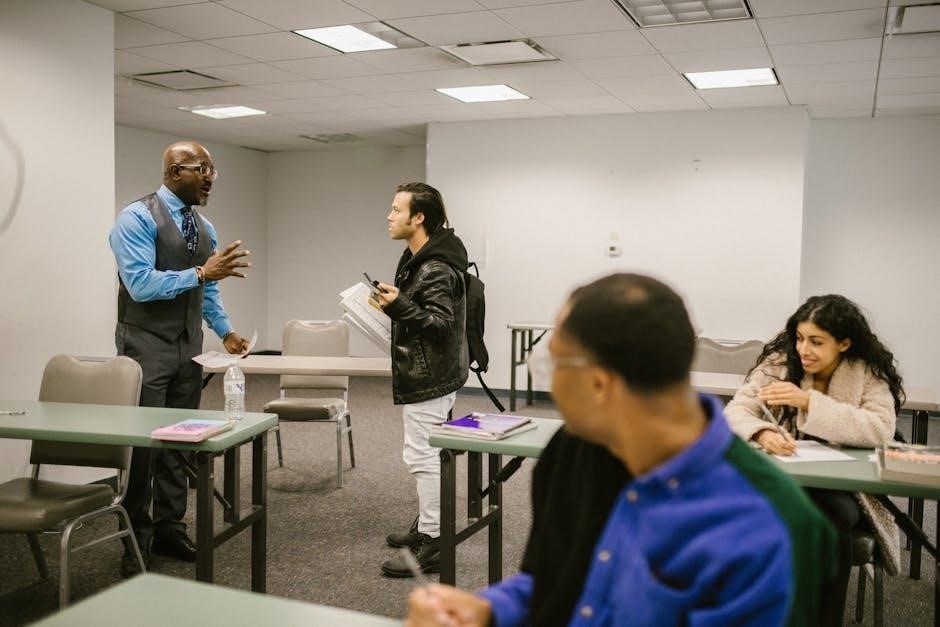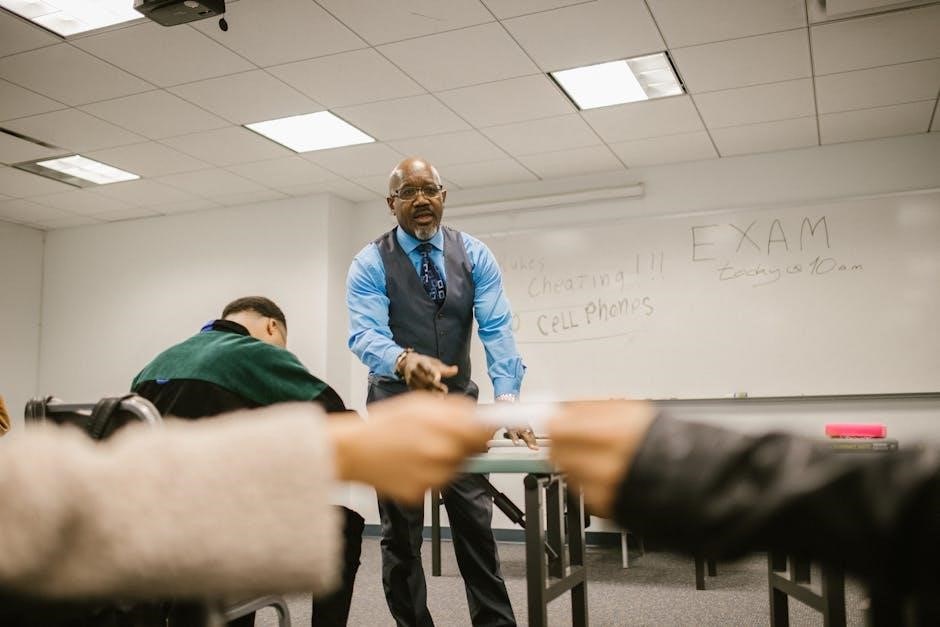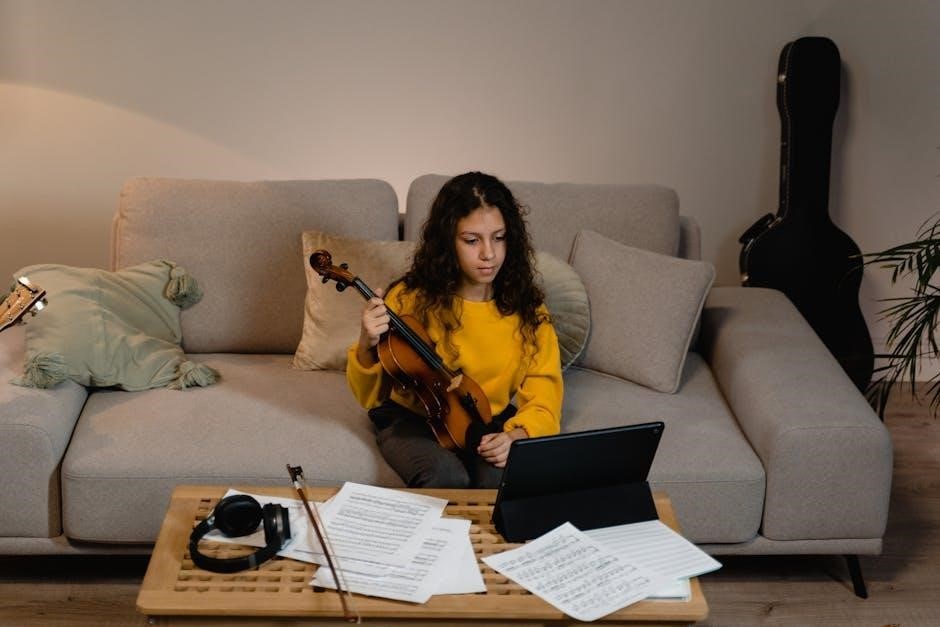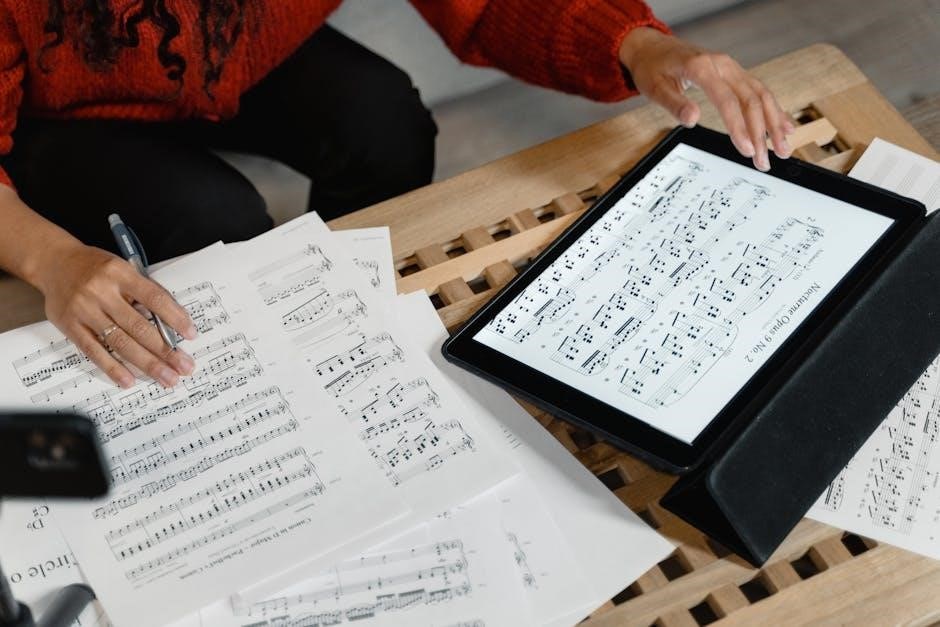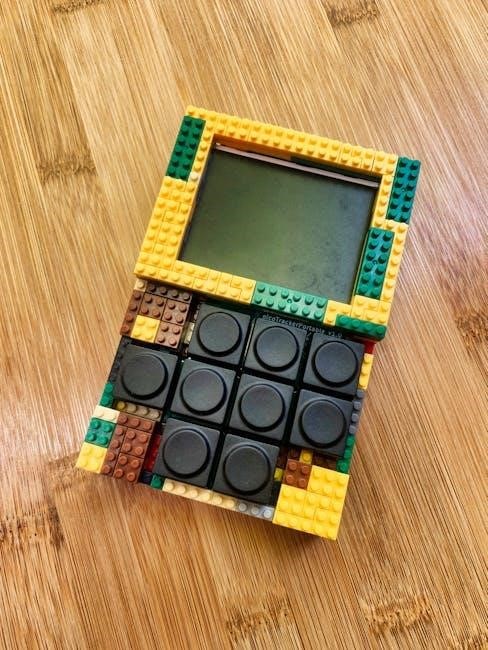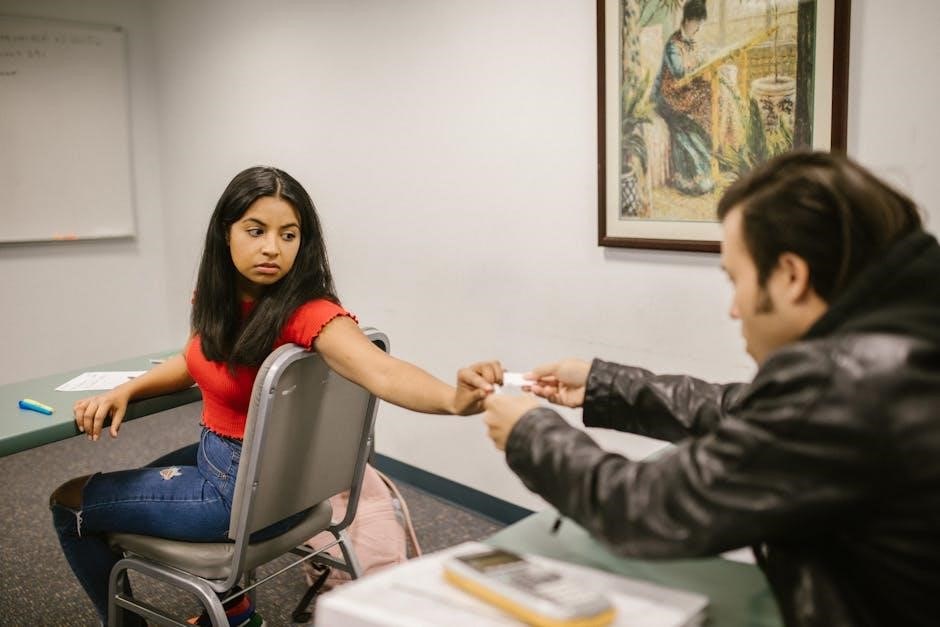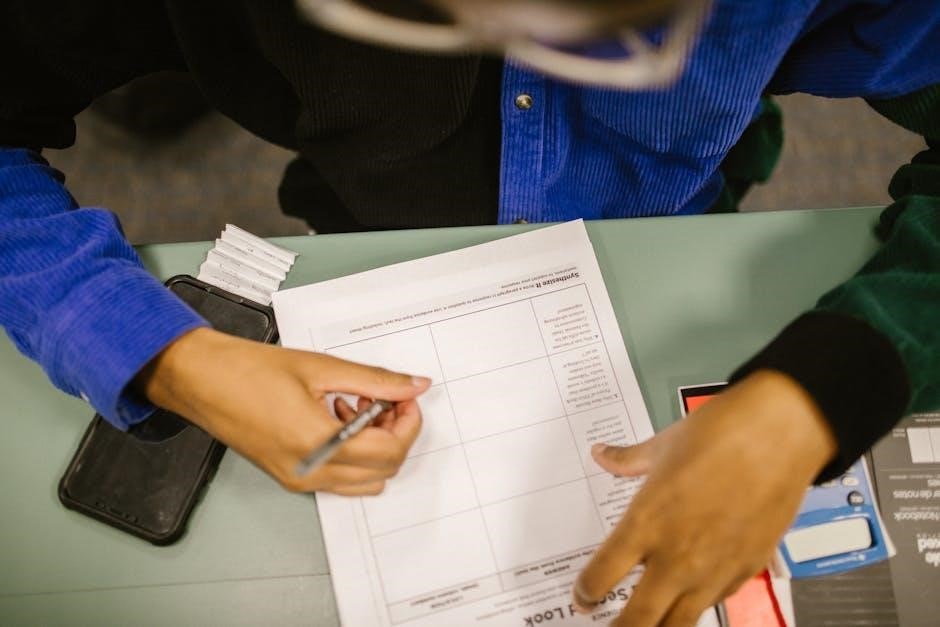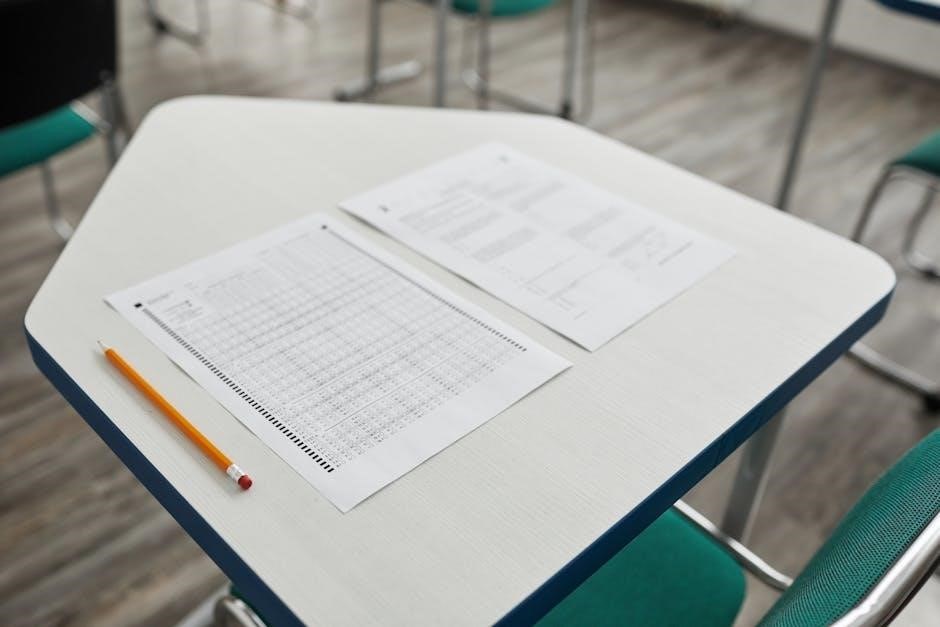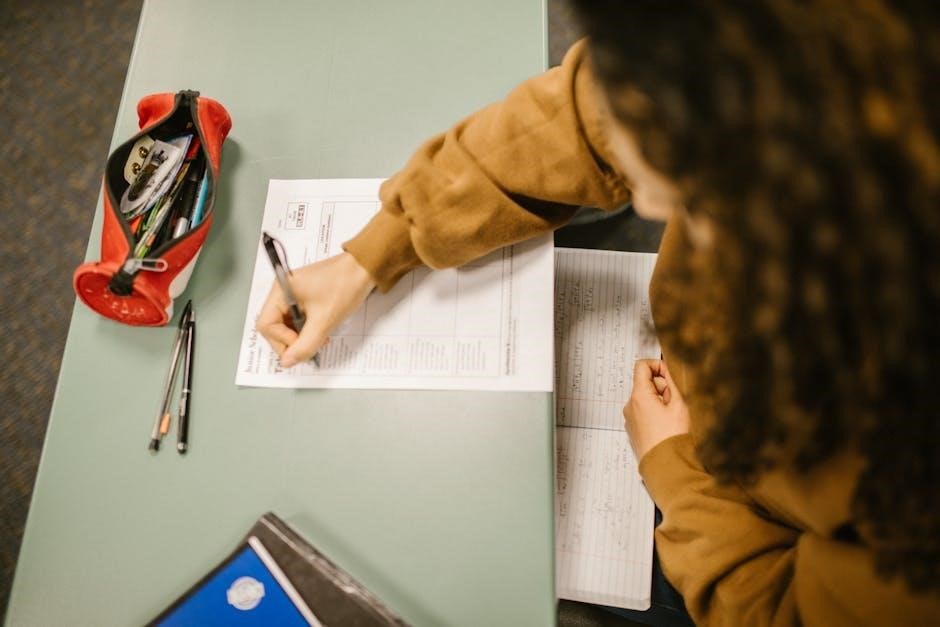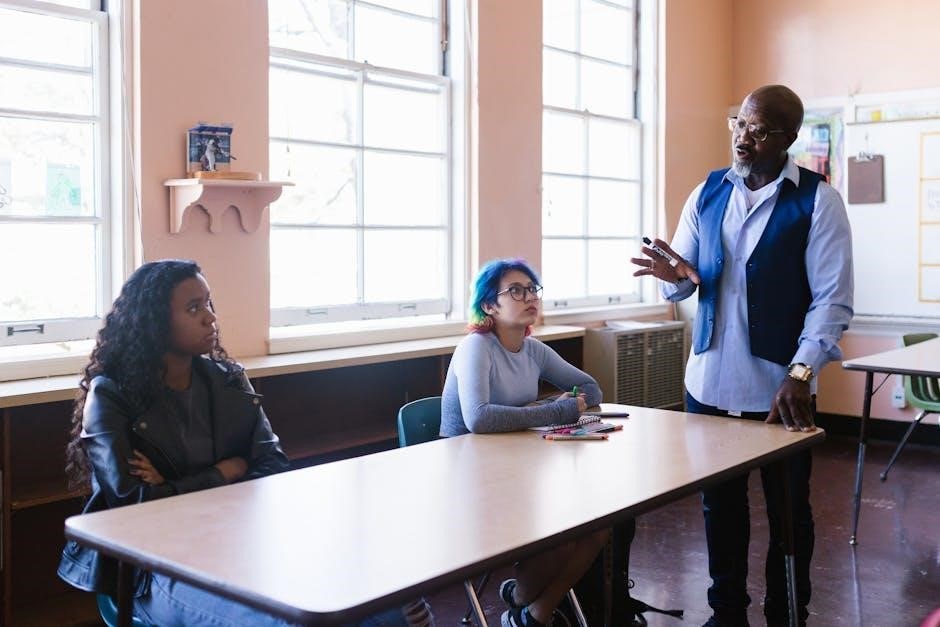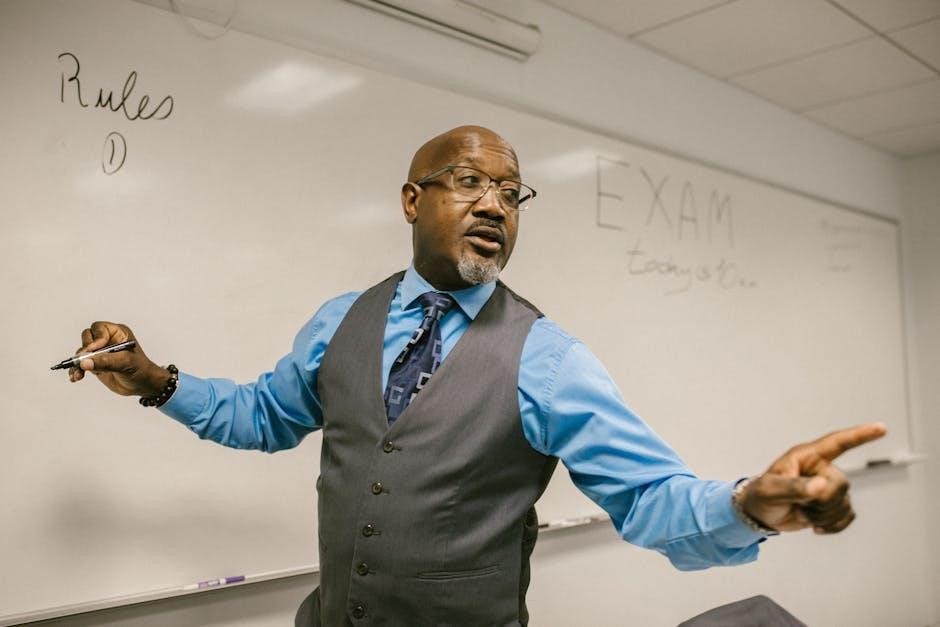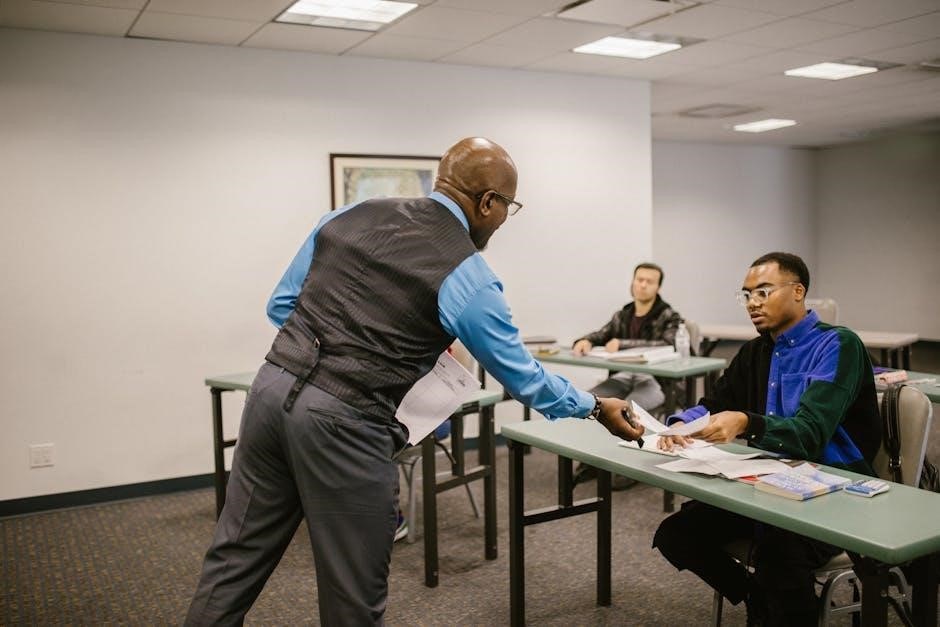The Instructional Skills Workshop (ISW) is a comprehensive, interactive program designed to enhance teaching effectiveness by fostering student-centered learning and instructional excellence in educational settings.
1.1 Definition and Overview
The Instructional Skills Workshop (ISW) is a comprehensive, interactive program designed to enhance teaching effectiveness by fostering student-centered learning and instructional excellence in educational settings. It equips educators with practical skills, promotes reflective practice, and encourages collaboration among participants. The workshop emphasizes evidence-based teaching strategies, creating a supportive environment for instructors to refine their teaching methods and improve student outcomes effectively.
1.2 Importance in Educational Development
The Instructional Skills Workshop (ISW) plays a vital role in educational development by enhancing teaching effectiveness and fostering student-centered learning. It equips educators with practical skills to improve instructional delivery, promote active learning, and create inclusive environments. By strengthening teaching capacities, the ISW contributes to better educational outcomes, empowering instructors to inspire and engage students more effectively in diverse settings.
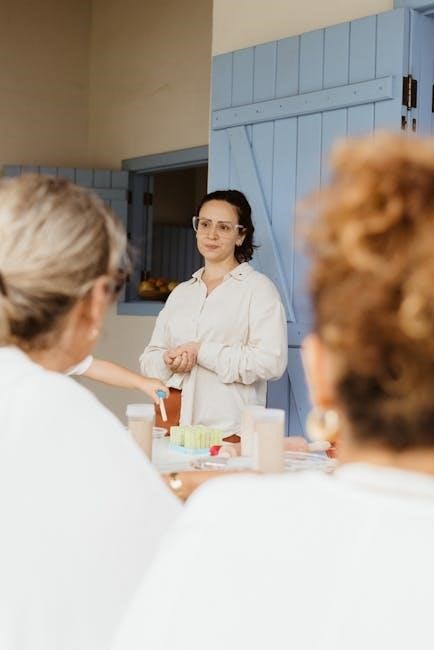
Benefits of Participating in an ISW
Participating in an ISW enhances teaching skills, improves instructional methods, and fosters professional growth, empowering educators to create engaging and effective learning environments for their students.
2.1 Enhanced Teaching Effectiveness
The ISW focuses on practical skills to improve teaching effectiveness, equipping educators with strategies to engage students, design impactful lessons, and use formative assessments. Participants gain confidence in delivering instruction, fostering active learning, and creating inclusive environments, ultimately enhancing student outcomes and educational experiences.
2.2 Improved Student Engagement
The ISW equips educators with strategies to boost student engagement through active learning techniques, formative assessments, and inclusive practices. These methods encourage participation, motivation, and deeper understanding, fostering a dynamic and interactive learning environment that promotes academic success and collaboration among students.
2.3 Building a Community of Educators
The ISW fosters collaboration and peer support, creating a supportive environment where educators share experiences, exchange ideas, and learn from one another. By encouraging reflective practice and shared goals, the workshop helps build a network of professionals committed to continuous improvement and collective growth in education. This sense of community enhances both individual and institutional development.

Essential Instructional Skills Taught in the Workshop
The ISW equips educators with core teaching skills, including lesson planning, active learning techniques, and strategies to promote critical thinking and create inclusive learning environments.
3.1 Lesson Planning and Design
The ISW emphasizes effective lesson planning, teaching participants to set clear objectives, organize content, and align activities with assessments. Educators learn to design structured, engaging lessons that promote active learning and cater to diverse student needs, ensuring a cohesive and purposeful educational experience. Practical strategies and tools are provided to enhance instructional design skills.
3.2 Active Learning Techniques
The ISW introduces educators to active learning techniques, such as group discussions, think-pair-share, and problem-solving activities. These methods encourage student participation, critical thinking, and collaboration. Educators learn to design engaging, interactive lessons that promote deeper understanding and retention of material. Techniques also include hands-on experiments, role-playing, and real-world applications to enhance student engagement and practical learning experiences.
3.3 Promoting Critical Thinking
The ISW emphasizes strategies to foster critical thinking, such as interactive discussions, reflective exercises, and problem-solving tasks. Educators learn to design lessons that encourage students to analyze, evaluate, and synthesize information. Techniques include open-ended questions, case studies, and collaborative projects, helping students develop analytical skills and apply knowledge to real-world scenarios effectively.

Structure of a Typical ISW
A typical ISW is a 3-day intensive program combining hands-on activities, group discussions, and practical teaching sessions. It includes pre-workshop preparation, interactive sessions, and post-workshop support to ensure sustained development.
4.1 Pre-Workshop Preparation
Pre-workshop preparation involves setting clear learning goals, reviewing provided materials, and completing preliminary readings; Participants are encouraged to reflect on their current teaching practices and identify areas for improvement. This phase ensures a focused and productive experience during the workshop, allowing educators to maximize their learning and engagement.
4.2 Hands-On Activities and Sessions
Hands-on activities and sessions are central to the ISW, offering practical opportunities for educators to apply new teaching strategies. These include microteaching exercises, group discussions, and interactive simulations. Participants engage in active learning, receiving immediate feedback and refining their techniques. These dynamic sessions foster collaboration and experimentation, ensuring educators gain confidence and competence in their instructional practices;
4.3 Post-Workshop Support and Resources
Post-workshop support ensures educators continue to grow beyond the initial training. Resources include access to instructional materials, online communities, and follow-up sessions. Participants can review session recordings and engage in peer discussions. Feedback mechanisms and guided reflection tools help sustain improvement. These resources empower educators to apply workshop learnings effectively in their teaching environments, fostering long-term professional development and instructional excellence.
Role of Feedback in the ISW
Feedback is a cornerstone of the ISW, fostering growth and improvement. It provides educators with insights to refine their teaching techniques and enhance student engagement effectively.
5.1 Peer Feedback and Collaboration
Peer feedback in the ISW fosters a collaborative environment where educators share constructive insights, refining their teaching techniques. This mutual exchange enhances teaching effectiveness and student engagement, allowing participants to learn from each other’s experiences, gain diverse perspectives, identify strengths and areas for improvement and implementation, leading to continuous professional development and educational growth.
5.2 Instructor Feedback and Guidance
Instructor feedback in the ISW provides personalized guidance, helping participants refine their teaching strategies. Experienced educators offer constructive insights, fostering improvement in lesson delivery and student engagement. This tailored support enables participants to address specific challenges, adapt techniques, and enhance their instructional effectiveness, ensuring a meaningful and impactful learning experience throughout the workshop.

Teaching Strategies and Techniques
The ISW emphasizes evidence-based teaching strategies, focusing on student-centered methods, active learning, and real-world applications to enhance engagement and deepen understanding in diverse educational settings.
6.1 Student-Centered Teaching Methods
Student-centered teaching methods focus on interactive and collaborative learning, empowering students to take an active role in their education. These approaches encourage critical thinking, problem-solving, and real-world application of knowledge, fostering deeper engagement and personalized learning experiences. ISW emphasizes these techniques to create dynamic and inclusive classrooms that cater to diverse student needs and preferences.
6.2 Incorporating Real-World Applications
Incorporating real-world applications into teaching helps students connect academic concepts to practical scenarios. The ISW emphasizes this approach, providing educators with strategies to make learning relevant and engaging. Techniques such as case studies, problem-solving exercises, and real-life projects enable students to apply knowledge effectively, enhancing their understanding and preparing them for future challenges.

Assessing Student Learning in the Workshop
Assessment in the ISW involves formative and summative methods to evaluate student understanding. Tools like quizzes, group projects, and presentations help measure learning outcomes effectively.
7.1 Formative Assessment Techniques
Formative assessment in ISW involves ongoing evaluations to monitor student progress. Techniques include exit tickets, think-pair-share, and quizzes, allowing instructors to adjust teaching strategies. Jay McTighe emphasizes quick strategies like exit tickets to gauge understanding. These methods provide immediate feedback, helping educators refine lessons and ensure students grasp key concepts effectively.
7.2 Tools for Measuring Learning Outcomes
Tools like quizzes, rubrics, and portfolios are used to measure learning outcomes. Digital quizzes provide immediate feedback, while rubrics ensure consistent assessment of assignments. Portfolios allow students to showcase progress over time, offering a comprehensive view of their development. These tools help educators align assessments with learning objectives and track student success effectively.

Creating an Inclusive Learning Environment
Fostering an inclusive environment involves promoting diversity, equity, and accessibility. Educators ensure all students feel valued and supported, creating a safe space for diverse perspectives and learning needs.
8.1 Promoting Diversity and Inclusion
Promoting diversity and inclusion is a cornerstone of the Instructional Skills Workshop. It fosters a welcoming environment where diverse perspectives thrive, ensuring equitable opportunities for all learners. By embracing cultural responsiveness and Universal Design for Learning, educators create spaces that value individual differences, enhancing engagement and collaboration among students from all backgrounds.
8.2 Addressing Different Learning Needs
The ISW emphasizes strategies to address diverse learning needs, ensuring inclusive instruction. Techniques include Universal Design for Learning, differentiated instruction, and incorporating assistive technologies. Educators learn to adapt content, pace, and delivery to accommodate varying abilities, prior knowledge, and learning styles, fostering an inclusive environment that maximizes accessibility and engagement for all students.

Technology Integration in ISW
Technology integration in ISW enhances teaching methods by incorporating educational tools and digital resources, fostering interactive and dynamic learning experiences, ensuring accessibility and engagement.
9.1 Using Educational Technology Tools
Educational technology tools are integral to ISW, enabling instructors to create engaging, interactive learning environments. Tools like interactive whiteboards, learning management systems, and multimedia resources enhance lesson delivery. These technologies support dynamic presentations, real-time assessments, and personalized learning experiences, fostering student engagement and understanding while promoting effective teaching practices;
9.2 Enhancing Engagement with Digital Resources
Digital resources such as videos, simulations, and interactive modules enhance engagement by making learning interactive and relevant. These tools allow instructors to present complex concepts in an accessible manner, encouraging active participation and deeper understanding. By integrating real-world applications, digital resources cater to diverse learning styles, fostering a more dynamic and inclusive educational experience for all students.
Reflection and Self-Assessment
Reflection and self-assessment are critical processes in instructional development, enabling educators to evaluate their teaching methods and identify areas for improvement, fostering professional growth and enhanced effectiveness.
10.1 Reflective Practice for Educators
Reflective practice involves intentional examination of teaching methods and outcomes, allowing educators to identify areas for improvement and fostering professional growth. It encourages a mindset of continuous learning, where instructors analyze their experiences and adapt strategies to enhance student engagement and understanding, supported by feedback and self-assessment.
10.2 Self-Assessment Techniques
Self-assessment techniques empower educators to evaluate their own teaching practices, fostering professional development and instructional improvement. These methods involve setting goals, reflecting on performance, and using tools like journals or rubrics to identify strengths and areas for growth, enabling educators to refine their skills and align their practices with educational objectives effectively.
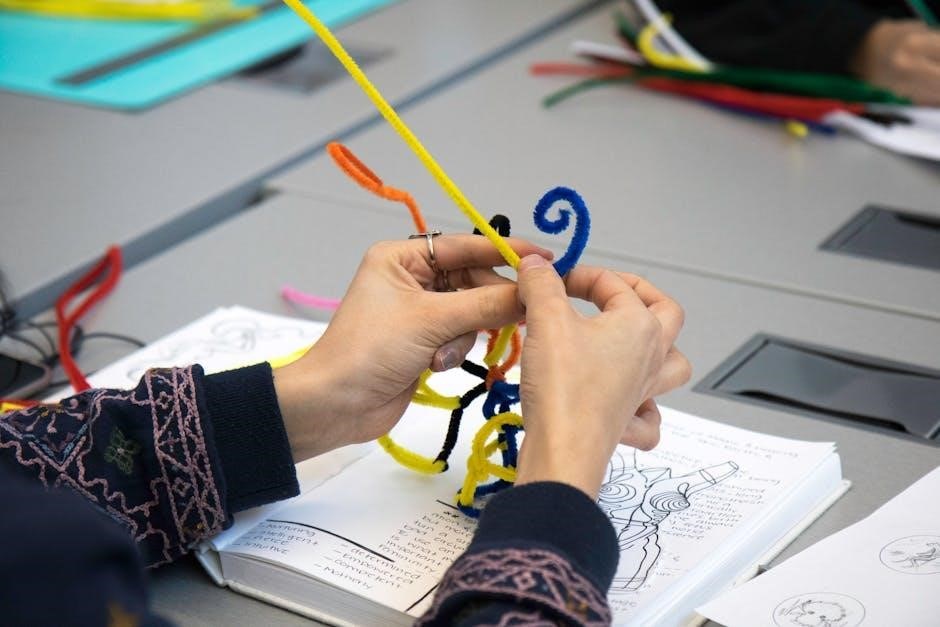
Measuring the Effectiveness of ISW
Evaluating ISW effectiveness involves assessing participant learning outcomes, teaching improvements, and long-term impact through feedback, observation, and performance metrics to ensure program success and continuous enhancement.
11.1 Evaluating Workshop Impact
Evaluating the impact of ISW involves assessing participant learning outcomes, teaching improvements, and program effectiveness. Feedback from educators, formative assessments, and tools for measuring learning outcomes are used to determine the workshop’s success. This process ensures continuous improvement and alignment with educational goals, fostering better teaching practices and student engagement.
11.2 Long-Term Benefits for Educators
Participating in an ISW fosters long-term professional growth, enhancing educators’ ability to design effective lessons and engage students. The workshop encourages reflective practice, critical thinking, and continuous improvement, leading to sustained teaching excellence and a deeper commitment to student-centered learning. These skills and mindsets benefit educators throughout their careers, contributing to ongoing educational innovation and success.
The Instructional Skills Workshop (ISW) is a valuable program that enhances teaching effectiveness, promotes student-centered learning, and fosters educational innovation and professional growth for educators.
12.1 Summary of Key Takeaways
The ISW equips educators with essential instructional skills, fostering student-centered teaching, critical thinking, and effective lesson design. It emphasizes feedback, collaboration, and reflection, creating a supportive environment for professional growth and improved teaching practices, ultimately enhancing student learning outcomes and engagement.
12.2 Encouragement for Participation
Participating in an ISW is a transformative experience for educators, offering practical skills and strategies to enhance teaching effectiveness. It fosters a supportive community, encourages reflection, and provides tools to create engaging, student-centered learning environments. Educators leave empowered with new techniques and a renewed passion for teaching, benefiting both their professional growth and student success.



